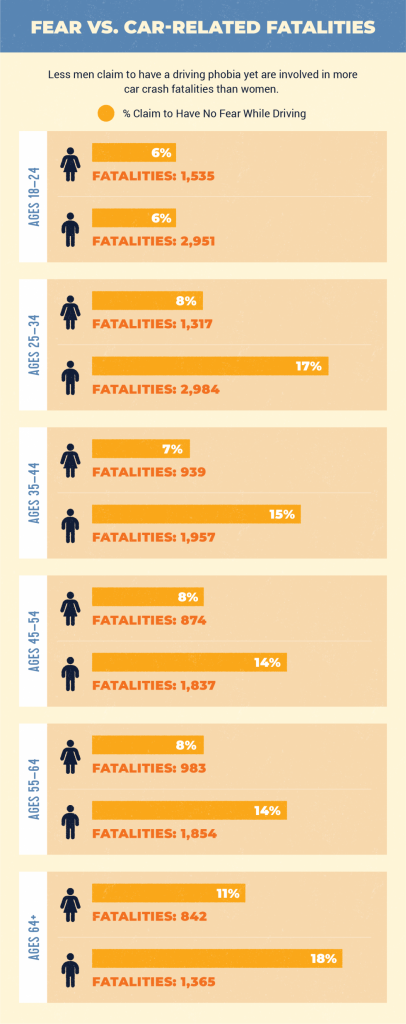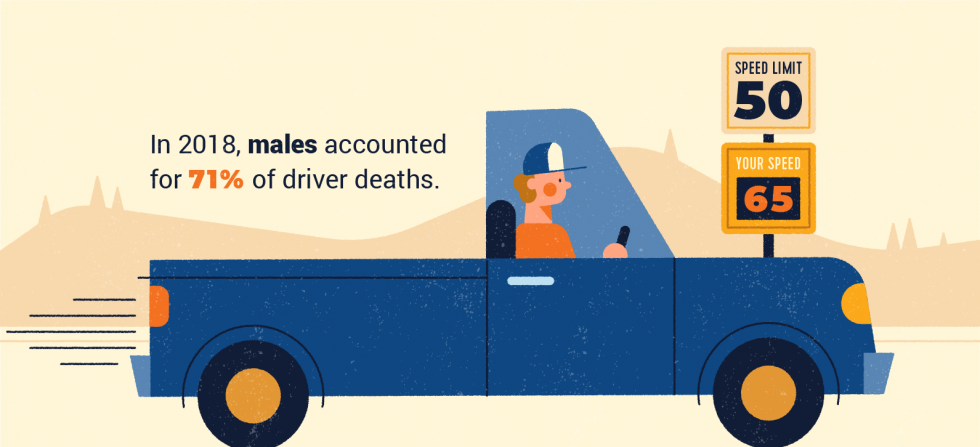Let’s break down these fears even further and stack them against road safety data and fatality rates from the U.S. Department of Transportation to get a better picture of whether or not this fear is justified.
Since fear is your mind’s way of telling you to tread lightly and be more alert in certain situations, for this particular survey, we were interested in who experienced more fear while driving based on gender. We also wanted to find out if there were any patterns or correlations with the number of crash involvements by the sexes.
Again, not surprisingly, more men claim to feel no fear while driving, but are they truly safer drivers?
Well, when you compare the number of passenger car crash fatalities men and women are involved in, the answer is — not really. Although fewer women are on the road than men, men still significantly surpass women in car-related fatalities.
The second-highest percentage of men claiming to feel no fear behind the wheel were men ages 25 to 34 at 17 percent. Interestingly, this is also the group with the highest number of fatalities.
As you can see from the table above, as men get older, the percentage of those who claim to have no fear while driving sometimes nearly doubles compared to women in their age group. Although the number of fatalities decreases as both men and women get older, according to the U.S. Department of Transportation, men still account for more car-related deaths than women.
Men are also more likely to engage in dangerous driving practices including driving under the influence, speeding and not wearing a seatbelt.
In 2018, men accounted for 71 percent of driver deaths in passenger vehicles. So although they experience less fear while driving, they might benefit from practicing more caution on the road.
Data from a recent survey, conducted by CarRentals.com


